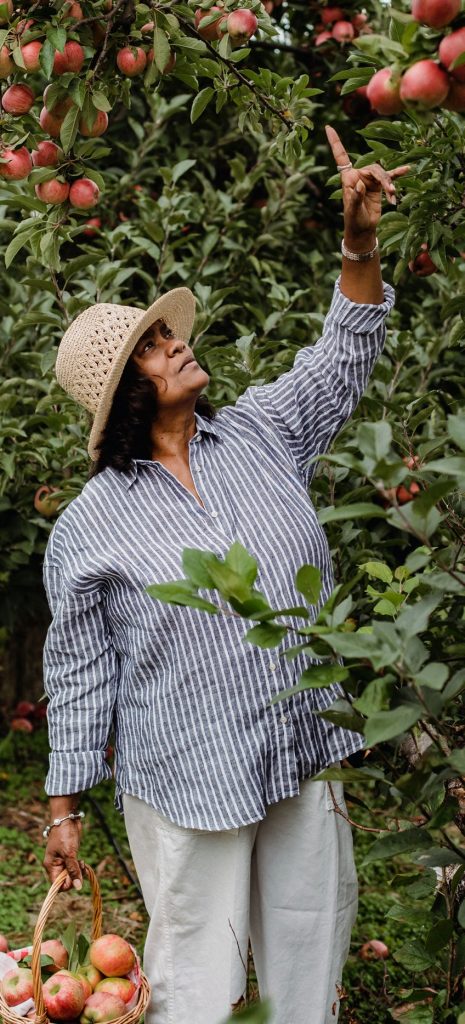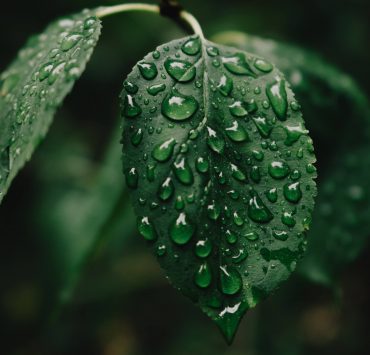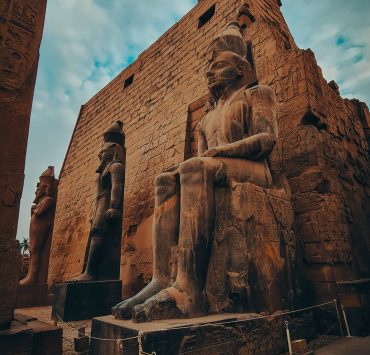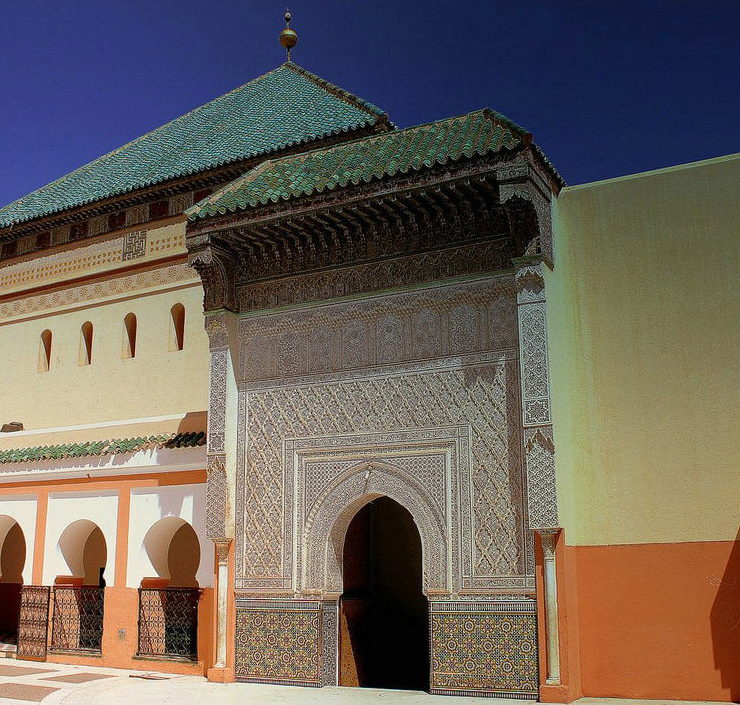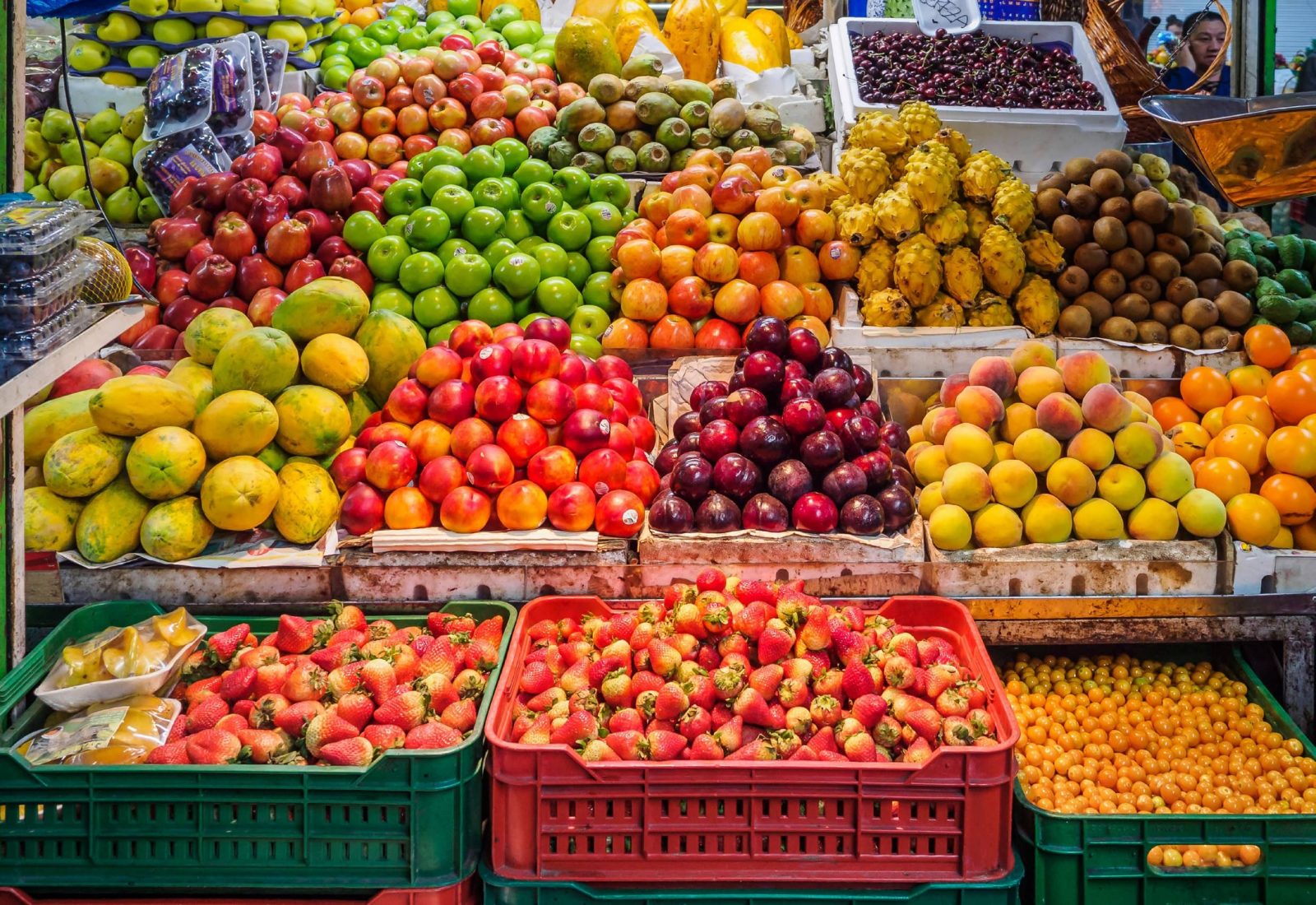
Chioma Phillips is the Editor of Msingi Afrika Magazine and…
Read Next
The Patient One Eats Ripe Fruit
This Kiswahili proverb has been on my mind, not for the beautiful pearls of wisdom that it offers one for life and living, but for a more literal agriculturally-connected reason.
Being passionate and curious about the way our food is produced and grown, there are various groups and individuals I follow online in the area of farming. One group I joined recently has a majority of members who fully embrace the use of ‘modern methods’ and technology to provide maximum yields in terms of produce and profit for the hard-laboring farmer. Like warriors of old, these farmers descend upon dearth of nutrients, vermin and pestilence alike using tools like fertilizers, weed killers, pesticides, ably wielding timelines for their use in order for the produce to be within EU guidelines with regard to residue by the time of shipping. They nimbly navigate timelines for when to harvest in order to be able to ship on to markets outside of Kenya/Afrika etc. They harness the power of cooperation and collaboration from fellow members for what to spray if their plants appear to be doing less than their best or to seek counsel for what to grow or not in order to ensure that they make money.
I have to say, it has been great validation observing these interactions which have confirmed everything we have shared with you about the over-commercialization of agriculture and its effects on the choices that farmers in Afrika are making. It has been validating and disheartening at the same time because I realize that there is a large grouping of people from my own country – and in Afrika – that has buckled under the pressure of the pursuit of the futility of the world’s farming systems. Much like there are those who have buckled under the pressure of the pursuit of the futility of the world’s financial systems, world’s health systems, world’s education systems, world’s governing systems, world’s trade systems, world’s technological systems, world’s food production systems and on and on and on. Calling what is evil, good, and actively building these systems up and defending them with all their strength because of the crumbs they are able to gather for themselves and their families.
These farmers represent the ones who have made a determination to walk in the ways of modern convention. They cry the loudest when farm inputs increase in cost, mock the hardest when options for how to grow food organically (safely and healthily) are shared and ignore the increasing shift by the continent towards the embrace of the UPOV Convention, because to them, that’s the norm and it is acceptable. They are open to every new seed variety as long as it will give them more and greater yields, they snap up every new hybrid because their friends in the group say that it brought them that little bit extra in output and revenue and they chase hard after profit, giving no regard to the welfare of their consumers who are purchasing food items that are laced with the chemicals that these farmers so eagerly saturated their crops with. Giving no thought to the long-term health of their soil, the living ecosystem within it, the safety of the water and even the animals – domesticated and wild – that interact with the chemicals they are putting out there constantly.
These are the farmers who harvest their fruit early so that they can be counted among those who shipped their avocados to China and made a killing. However, they harvest too early at times and end up, as Kenya has recently experienced, having their produce banned because it does not pass muster. The pull of their greed causing them to not only miss out on the cash they pursued so impatiently but to even incur costs and penalties due to this very thing – and to impact a wider community of farmers who are now all under this blanket ban. The pull of their greed causing them to completely miss their responsibility to provide safe, healthy food to consumers, rather than profiting from poison.
I may have shared this in a previous article. One day it occurred to me that I did not know what a tree-ripened banana tasted like and so I asked someone who has been a fountain of knowledge for me, for indigenous ways and practices, whether there is any difference between the taste of a banana that ripens on the tree and the taste of these bananas that ripen along the way, having been harvested early in order for them to be shipped to market. She said, “Oh yes, a big difference. The bananas that ripen on a tree are so tasty!!!” I have translated this from Kiswahili, so you need to know that the way it was expressed was so much richer and deeper. I felt so bad. I won’t lie to you. I just kept thinking how much lower the quality of our lives is in a so-called much more ‘developed and advanced’ society.
Afrika has been duped into thinking that subsistence farming is a dirty word or practice, that the simple way of living where you grow what your family needs and exchange any excess with friends, family for what they have grown in abundance are a backward practice. Afrika has been duped into believing that farmgate sales or exchanges are an evil thing. But, when you consider that an organically grown tree or vine-ripened fruit has spent the maximum amount of time needed to fully develop and obtain all the nutrients that your body needs from the soil around it – and then you go to the market and look at the produce there that was yanked off branches by people eager to make money back from the inputs that they paid so hefty a fee for, maybe you will join me in grieving a little bit for what we have lost, even as we plan an approach to take it back!
The one who is patient will eat fruit that is ripe. There is a culture and ancient wisdom behind this saying that, even as I try to focus exclusively on the literal meaning behind the saying, I cannot help but interact with and share. Plants grow how they grow – from seed to maturity to harvest – taking the time that they take to do so. The ‘modern’ farmer whose heart is set on profit wants a guarantee that the months or even years that they have spent nurturing these plants will pay off. And, in order to do so, they find ways in which to control the process using seed manipulation, soil manipulation and environmental manipulation so as to bring forth a guaranteed harvest… not understanding that there are consequences for each one of these attempts to take all control into their own hands.
They celebrate their ingenuity and wisdom, not understanding that they have actually corrupted the ancient ways by following the paths of those who taught them. They have introduced an unholy seed into the land and they reap that harvest in the form of dead soils and dead fruit that harm the body – but they ‘mitigate’ that using even more chemicals in order to force fruit-bearing so that they can continue to profit. They have found ways to grow crops outside of their seasons of growth in order for appetites to be sated and wallets to be filled. And they call all these things wisdom… unaware that there is such a thing as dark and corrupt wisdom that men frequently draw from.
 PIN IT
PIN ITThe patient farmer, on the other hand, understands that there are times and there are seasons, there are ways more ancient than the mind that is disconnected can understand and there are those who watch over these things who are answerable to the One Who set all things in motion. The patient farmer understands that control is a mere illusion and a deceptive trap that could imprison one forever and that it is better to restore the rhythm of life and its harmony and eat from that, rather than to force an artificial rhythm that will bring forth artificial results.
What this farmer eats, has benefits beyond the mere physical realms that many have chosen to live in and focus on. This farmer eats the goodness of the Lord in the land of the living and even beyond because he recognizes that he is part of something far grander than this tangible space and that he is responsible for lives and livelihoods through what passes through his hands. And that the care he provides to others is captured in everything he does, from beginning to end. There is no denying the quality of life that he supplies through his produce because that is the end result of the quality of the decisions that he made all through. From the type of seed he plants, choosing that which only carries life, to how he nurtures the soil, water and air around him and the plants and how he regards those who will partake of what he produces – human and animal. So, by the time he was willing to wait for his fruit to ripen on the tree, before plucking it from its life source – the branch – he has understood something beyond mere marketplace interactions, he has understood life and his own purpose as being one who is life-giving. He has understood that life is not something that is forced, but something that is cared for and nurtured and shared. And that to walk away from that is to invite the opposite of life to trail his ways and those of the people he interacts with.
The same thing goes for the eater. The patient one will eat fruit that is ripe, safe and healthful. By biding their time in making good choices for their and their family’s health, searching out the type and quality of food based on origin. Perhaps missing the mark from time to time but constantly finding a way back to the path of choosing that which will feed and abundantly nourish them, sacrificing temporary pleasure or ease for that which costs a little more in terms of time in order to secure a safe path for himself and his people with regard to nutrition. But not just nutrition – lifestyle. That one will enjoy an outcome that is pleasurable from choosing to walk a deliberate path of mindfulness, conscious of what is of benefit and what is not. Leaving behind that which appears to promise value but in actual fact delivers harm. Having made up his mind that his choices will match his commitments despite what it costs him.
Trust me, if we had more people like the patient farmer and the patient eater, the ‘modern’ farmer and the world systems would lose the traction they have gained in society and sanity would be restored. The path of patience would become our reality, one filled with life, health and benefit for all.
Subscribe now for updates from Msingi Afrika Magazine!
Receive notifications about new issues, products and offers.
What's Your Reaction?
 PIN IT
PIN ITChioma Phillips is the Editor of Msingi Afrika Magazine and the host of Msingi Afrika Television. Her hope is to see the Truth shared, with all who will listen, for the transformation of the people and the continent of Afrika - and the world. She believes passionately in the critical role that Afrika and Afrikans have to play on earth right now and hopes to ignite the spark that will cause them to see and believe who they are, so that they can live out their Truest lives for the remainder of their days.









